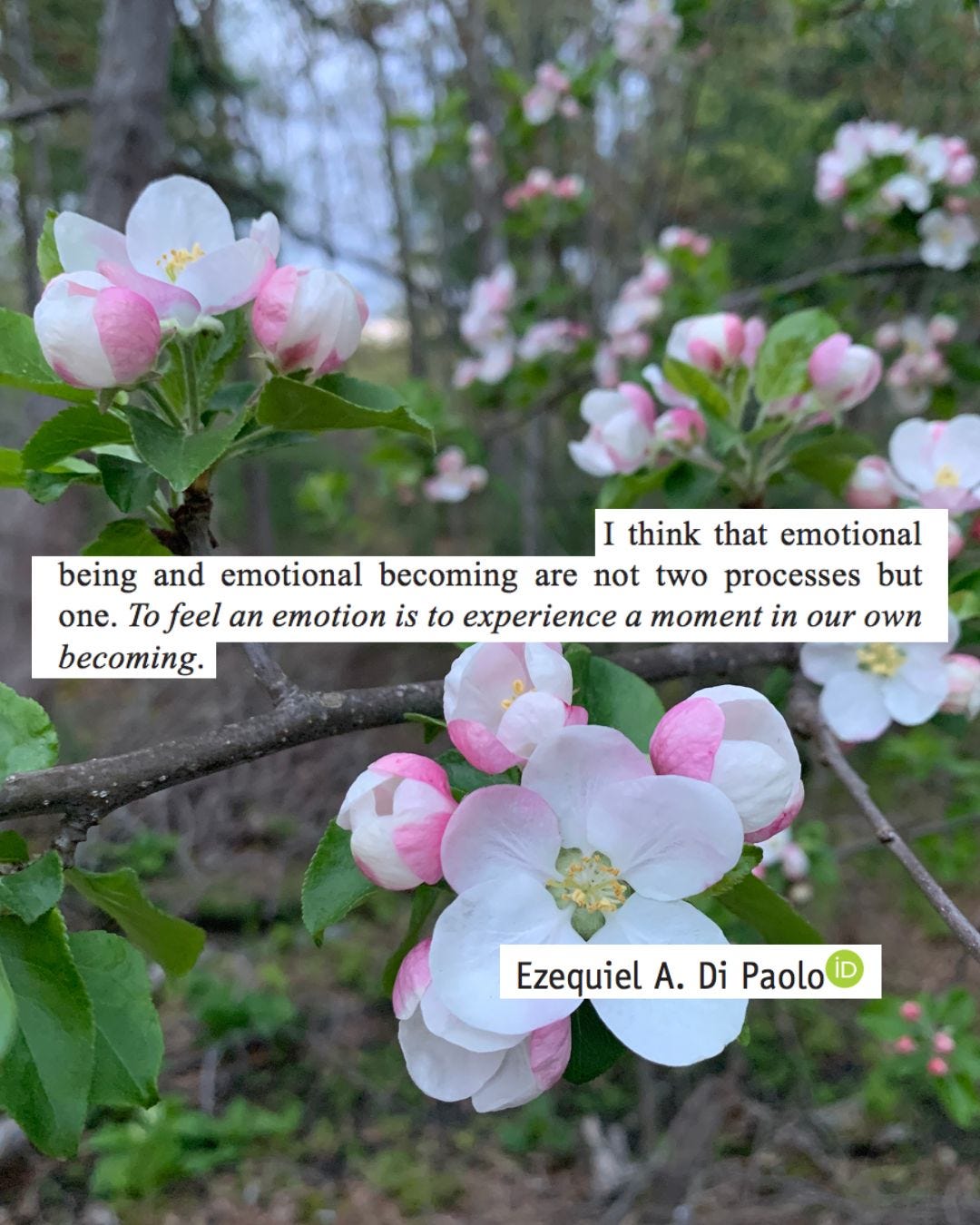
I have a few spots open for one-on-one Tarot sessions this month. To know more about what sessions entail, click here & to book, click here.
When I interviewed Ami Harbin about her book on disorientation last year, she told me about this idea that we experience emotions more or less depending on how they’re responded to (or not) by the people around us. We were discussing the importance of what Harbin calls “toeholds” in disorientations—those experiences of others adequately witnessing us when we’re not sure how to go on—and how they can make disorientations “more livable.” I found this idea that emotional experience itself can be altered depending on the responses of others really compelling, especially in a context of grief.
It makes intuitive sense that our emotional experiences are shaped by those around us, and despite how isolating it can can feel and be, grief is inherently social. In “Love and Death” Kathleen Higgins writes about disenfranchised grief as a way to underscore grief’s deep social nature; it is psychologically important that our losses be acknowledged as grieveable by others. In Grief Worlds, Ratcliffe argues that grief’s trajectory is inextricable from how we relate to other people, and therefore must be thought about in interpersonal and social terms.
And then last week I went down a citation-shaped rabbit hole in Matthew Ratcliffe’s paper “On feeling unable to continue as oneself.” The hole’s opening was the statement “humans are unfinished creatures.” It was a quote from Ezequiel Di Paolo’s “How your own becoming feels,” which was published in a 2020 issue of Emotion Review, a journal for interdisciplinary research on emotions. Di Paolo’s “How your own becoming feels” fleshed out this line of thinking in even greater (and quite poetic) detail.
For Di Paolo, we learn or learn not to feel certain emotions through interactions with others, “in the kinesthetics of movement, in the intimate resonances of a conversation, the shared outrage at the latest piece of news, or the tense atmosphere of a meeting.” He notes the work of Michael Mascolo, which is in a line of contributions that rejects “the confinement of emotional life to the unshared mental space of each individual.”
For Di Paolo, the sequestering of emotional life inside the bounds of the individual body is “at odds with everyday life,” but is reinforced and reproduced by the psychology field, with its emphasis on the autonomous individual as the primary unit for intervention. He argues that it would make better sense to understand emotions as living not only in “inner subjective dimensions” but also “out there.”
And then later he writes that “to feel an emotion is to experience a moment in our own becoming.” Which I think is so beautiful! But what does it mean?
If you’re enjoying this, consider hitting the like button. <3



